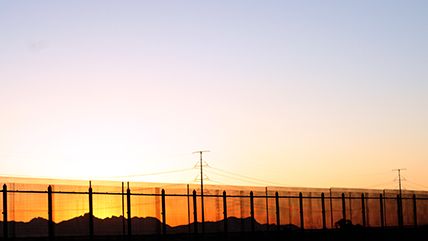The Prohibition President

In a January 8 prime-time border security speech so unpersuasive that only 2 percent of Quinnipiac poll respondents said it changed their minds, President Donald Trump did the country a rare rhetorical favor. By thoroughly blurring the lines between immigration and drug policy—at one point he claimed that "the border wall would very quickly pay for itself" because "the cost of illegal drugs exceeds $500 billion a year"—the president offered an unintentional lesson that the country has needed to learn for far too long: Prohibition kills.
Ask most reasonable adults why the 18th Amendment, which banned the manufacture and distribution of alcoholic beverages, was a resounding policy failure, and they won't hesitate: You cannot arrest out of existence a good or behavior enjoyed by millions of people. Black markets produce dangerous products peddled for high profit margins by violent criminals. Since there can't possibly be enough cops, selective enforcement will undermine respect for the rule of law and incentivize corruption.
Yet when invited to apply the same logic to other activities, policy makers and commentators have been blanking for 85 years. Acclaimed filmmaker Ken Burns, even while promoting his documentary Prohibition in 2011, could not see parallels to the drug war, telling Reason's Nick Gillespie, "No, I think it's less to that. Alcohol is used by every culture since there have been human beings. Drugs are a subcultural thing."
We have come a long way as a country since then in belatedly deploying prohibition analysis to policy conversations about marijuana, to the point where one-quarter of Americans now live in states where recreational use is legal. But we seem to be going the opposite direction on harder substances, while losing the plot entirely when it comes to immigration.
Trump embodied both logical errors in his speech.
"Our southern border is a pipeline for vast quantities of illegal drugs," he said, "including meth, heroin, cocaine, and fentanyl. Every week, 300 of our citizens are killed by heroin alone, 90 percent of which floods across from our southern border. More Americans will die from drugs this year than were killed in the entire Vietnam War."
The president's solution—vastly expanding and reinforcing the existing 650 miles of physical barriers along the 1,950-mile U.S.-Mexico border—would have little impact on those numbers. "For the first 11 months of the 2018 fiscal year, 90 percent of the heroin intercepted at the border and 88 percent of the cocaine was captured at a legal port of entry rather than between those ports," USA Today pointed out. Fentanyl, for its part, is coming primarily through China and Canada.
Meanwhile, note the drug left off Trump's list: pot. As the Cato Institute's David Bier reports ("The Wall Won't End Pot Smuggling at the Border. Legalization Will," page 22), the legalization of recreational marijuana in the United States that began in 2014 vastly reduced demand for the Mexican cartels' weed.
Traffickers, alas, have just moved on to where the prohibition still exists. "By making prescription opioids harder to come by, government policy has probably driven illicit actors to supply—and drug users to ingest—fentanyls," the American Enterprise Institute's Roger Bate concluded in a December report.
Where are opioid deaths decreasing? In states that have legalized marijuana.
Those who would crack down on drugs, guns, or the free movement of people routinely invoke a zero-tolerance, not-one-more-death argument. As Trump put it, "How much more American blood must we shed before Congress does its job?"
Yet when confronted with clear policy results, such as Portugal reducing drug usage and slashing drug-related harm by decriminalizing all narcotics in 2000—just 1 in 170,000 Portuguese now die from overdoses, compared to 1 per 5,000 Americans—the zero-tolerance crowd changes the subject. For instance, they start saying we need a wall to stop the coyotes from smuggling humans across the border.
But here, too, prohibition analysis is key. The Trump administration is choking off legal entry into the country—turning back potential asylees at the very entry ports where they are authorized to apply, slashing refugee intake to all-time lows, limiting family-based immigration—and then pronouncing itself horrified that bad hombres are trafficking desperate migrants across deadly stretches of wilderness.
You want fewer bodies in the desert and lower profit margins for criminal gangs? Legalize more of the people seeking work and safety in the United States. Prohibition kills.
